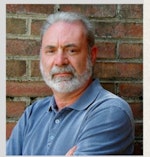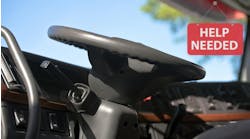How soon after a random drug test may a driver drive again? When is the only time that an employer is allowed to run a pre-employment screening program? If a driver remains at the controls of his truck and the engine off, is it considered 'off duty'?''
These are questions that most people in the trucking industry should be able to answer yet too many folks get them wrong, according to Lucas Kibby, marketing manager for Clackamas, Oregon-based company Glostone Trucking Solutions, which has offered compliance services since 1996. "You would think that employers, drivers and Owner-Operators would be able to answer the question especially about random drug testing because it’s one that they regularly face." he says. Drivers may get on the road immediately after a drug test; 43% of respondents got this wrong.
"Another question that surprised us was about PSPs (pre-employment screening programs). When are you allowed to run a report on an employee? I think it's something that drivers and Owner-Operators should know particularly if they're moving to a different company," says Kibby. An employer may run a PSP only before a final hiring decision is made; 61.3% of respondents got this wrong. As for the off-duty question, Kibby also expressed surprise that so many people didn't answer correctly. One in three respondents said remaining at the controls with the engine off constituted off-duty/not driving. Wrong.
Overall, for about 130 online test takers – which included drivers, fleet managers, O &O's and compliance professionals – only 60% of questions were answered correctly. Respondents came from 32 states and about 8 percent from Canada and Mexico.
"We understand that the FMCSA book is huge and details in it are pretty daunting. Because of this, it wasn’t so shocking for us that a lot of people missed these questions, because regulations can change quite often. It's difficult for everyone, even compliance people to stay on top of all the changes. Even so, everybody needs to be up-to-date on regulations to prevent any potential fines during audits." He adds that some of the regulations concerning drug and alcohol testing and what to do after a crash are not only important because they are subject to huge fines but are imperative from a safety point of view. "I think the post- accident questions about drug and alcohol testing (see below) are very important and people need to be aware of what the regulations say should be done in these situations."
Which industry group got the most answers right? "No surprise," says Kibby. "The compliance professionals."
Following are questions that most people get wrong. Correct answers are at the end. Take the complete online quiz.
1. How long do I need to keep my IRP (International Registration Plan) records for IRP audit purposes?
a. 1 Year
b. 4 Years
c. 5 Years
d. Record retention is not required for IRP
2. At what GVW (Gross Vehicle Weight) is the IRS (Internal Revenue Service) Heavy Vehicle Use Tax on a commercial vehicle required?
a. 10,000 lbs
b. 26,000 lbs
c. Over 55,000 lbs
d. None of the above
3. A driver must complete a post-accident alcohol test within ____ hours and a post-accident drug test within ____ hours.
a. 6 and 12
b. 10 and 24
c. 8 and 24
d. 8 and 32
4. A driver is required to complete a daily vehicle inspection report (DVIR):
a. For each vehicle he/she operates in a 24-hour period
b. For each new trip in a commercial vehicle
c. A daily vehicle inspection report does not need to be completed
d. Only upon discovery of a vehicle defect
5. A driver must complete a DOT post-accident drug and alcohol test when there is:
a. A fatality, injury requiring treatment or damage requiring a tow
b. A fatality, serious injury requiring medical treatment, damages of $2000 or more
c. A fatality, or an injury requiring treatment and the driver is cited within 8 hours or damages requiring a tow and the driver is cited within 8 hours
d. A verifiable violation of company, county, state or federal statutes.
Answers:
- Correct answer is b; most people said c.
- Correct answer is c; most people said b.
- Correct answer is d; most people said a.
- Correct answer is d; most people said a.
- Correct answer is c; most people said a.



